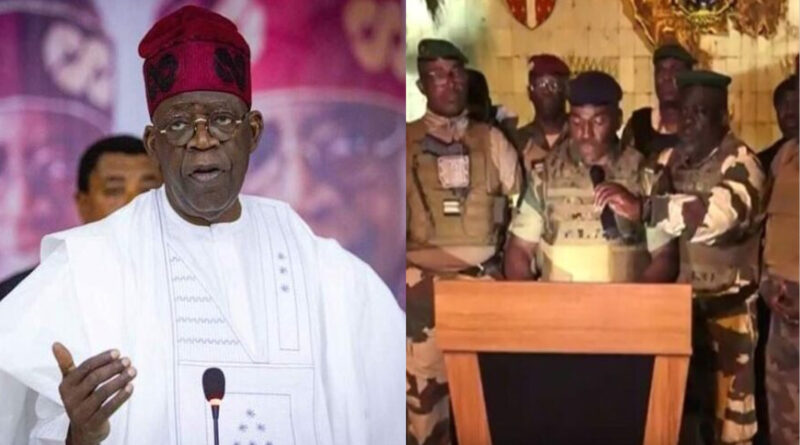By Kamil Opeyemi
President Bola Tinubu has expressed deep concern about the Wednesday coup in the Republic of Gabon in the West Coast of Central Africa.
Tinubu’s reaction came hours after a group of Gabonese military officers appeared on television Wednesday announcing they were “putting an end to the current regime” and cancelling an election that, according to official results, President Ali Bongo Ondimba won.
Military officers in Gabon have announced that they have taken power and put the president, Ali Bongo, under house arrest, as the country becomes the latest in Africa to suffer an attempted coup, only weeks after mutinous troops seized power in Niger.
Ajuri Ngelale, Special Adviser to the President on Media and Publicity while briefing State House Correspondent in Abuja on Wednesday said that Tinubu would consult with other Heads of State and Government in the African Union on the Gabon crisis with a view to determining the way forward for the natural resource-rich country.
‘’President Bola Tinubu is watching closely with deep concern for the country’s social political stability and at the seeming autocratic contention apparently spreading across different regions of our beloved continent.
‘’The president as a man who has made significant sacrifices in his life in the course of advancing and defending democracy is of the belief that power belongs in the hands of Africa’s great people and not in the barrel of a loaded gun,’’ he said.
Ngelale said the president affirmed that the rule of law and recourse to the constitutional resolutions and instruments of electoral dispute needed to be used in the matters of democratic challenges.
‘’To this end, the President is working very closely and continues to communicate with other Heads of States in the African Union.
‘’This is towards a comprehensive consensus on the next steps forwards with respect to how the power in Gabon will play out and how the continent will respond to contagious autocracy spreading across the continent,” he said.
Gabon is rich in natural resources such as timber, manganese and oil and it’s the fifth largest oil producing nation in Africa, which has helped drive its strong growth.
The country’s oil sector now accounts for 50 per cent of its GDP and 80 per cent of its exports.


